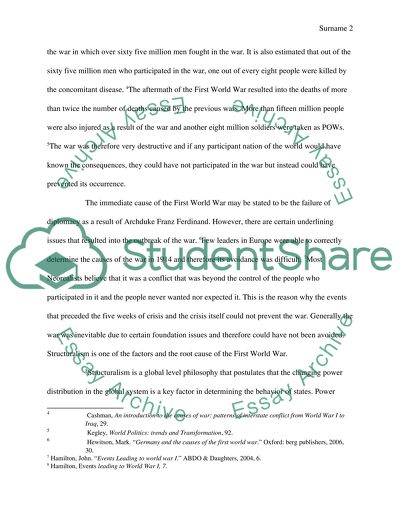Cite this document
(“What Were The Causes Of World War One Could The War Have Been Research Paper”, n.d.)
Retrieved from https://studentshare.org/miscellaneous/1577326-what-were-the-causes-of-world-war-one-could-the-war-have-been-prevented-who-was-at-fault-for-the-outbreak-of-war
Retrieved from https://studentshare.org/miscellaneous/1577326-what-were-the-causes-of-world-war-one-could-the-war-have-been-prevented-who-was-at-fault-for-the-outbreak-of-war
(What Were The Causes Of World War One Could The War Have Been Research Paper)
https://studentshare.org/miscellaneous/1577326-what-were-the-causes-of-world-war-one-could-the-war-have-been-prevented-who-was-at-fault-for-the-outbreak-of-war.
https://studentshare.org/miscellaneous/1577326-what-were-the-causes-of-world-war-one-could-the-war-have-been-prevented-who-was-at-fault-for-the-outbreak-of-war.
“What Were The Causes Of World War One Could The War Have Been Research Paper”, n.d. https://studentshare.org/miscellaneous/1577326-what-were-the-causes-of-world-war-one-could-the-war-have-been-prevented-who-was-at-fault-for-the-outbreak-of-war.


